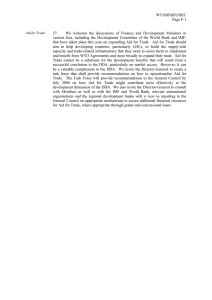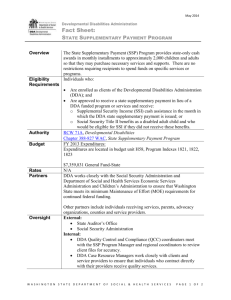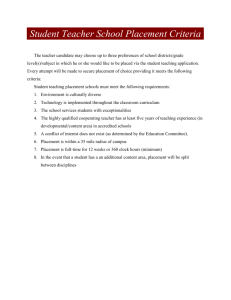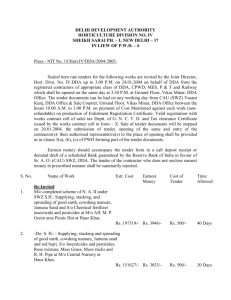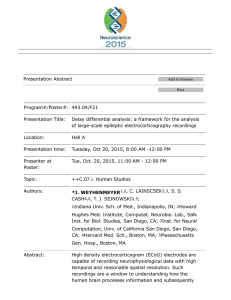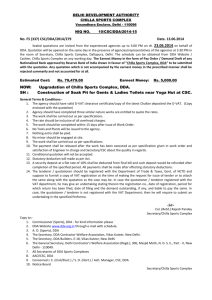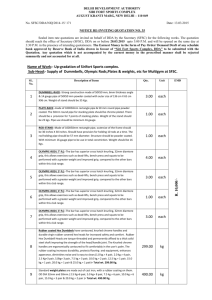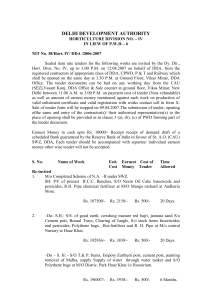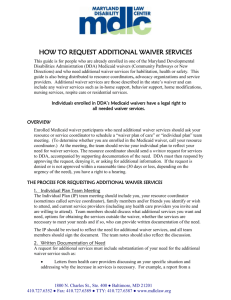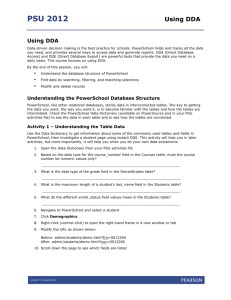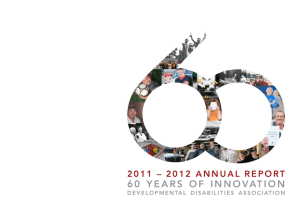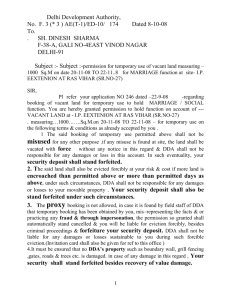Open this PDF - The Arc of Washington State
advertisement
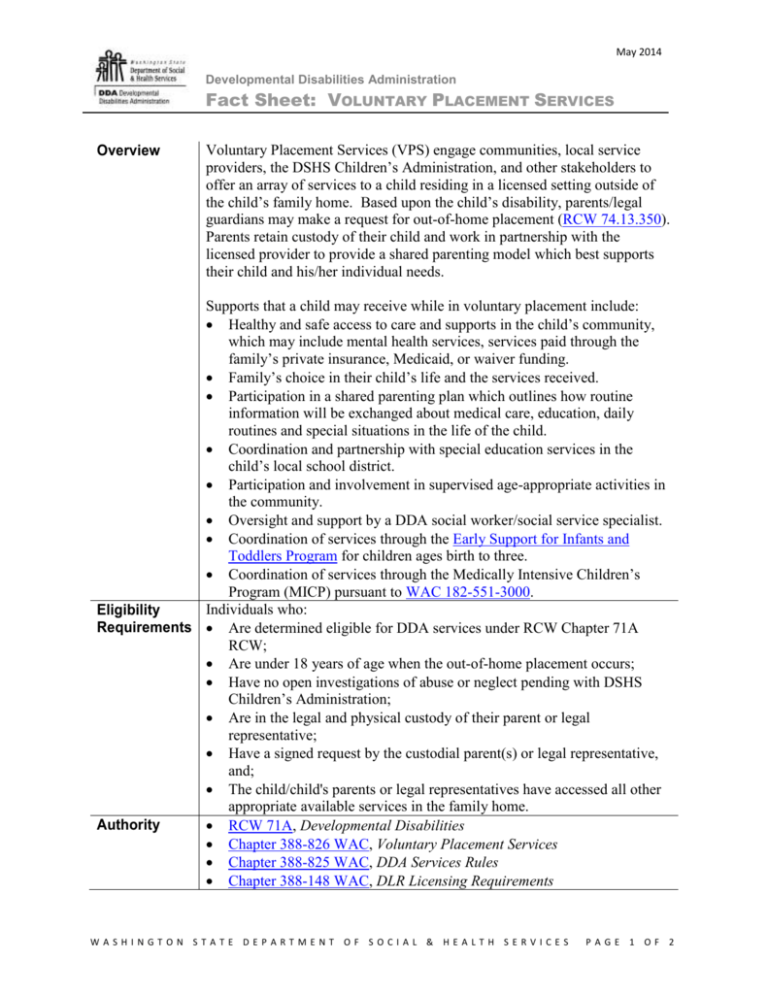
May 2014 Developmental Disabilities Administration Fact Sheet: VOLUNTARY PLACEMENT SERVICES Overview Voluntary Placement Services (VPS) engage communities, local service providers, the DSHS Children’s Administration, and other stakeholders to offer an array of services to a child residing in a licensed setting outside of the child’s family home. Based upon the child’s disability, parents/legal guardians may make a request for out-of-home placement (RCW 74.13.350). Parents retain custody of their child and work in partnership with the licensed provider to provide a shared parenting model which best supports their child and his/her individual needs. Supports that a child may receive while in voluntary placement include: Healthy and safe access to care and supports in the child’s community, which may include mental health services, services paid through the family’s private insurance, Medicaid, or waiver funding. Family’s choice in their child’s life and the services received. Participation in a shared parenting plan which outlines how routine information will be exchanged about medical care, education, daily routines and special situations in the life of the child. Coordination and partnership with special education services in the child’s local school district. Participation and involvement in supervised age-appropriate activities in the community. Oversight and support by a DDA social worker/social service specialist. Coordination of services through the Early Support for Infants and Toddlers Program for children ages birth to three. Coordination of services through the Medically Intensive Children’s Program (MICP) pursuant to WAC 182-551-3000. Individuals who: Eligibility Requirements Are determined eligible for DDA services under RCW Chapter 71A RCW; Are under 18 years of age when the out-of-home placement occurs; Have no open investigations of abuse or neglect pending with DSHS Children’s Administration; Are in the legal and physical custody of their parent or legal representative; Have a signed request by the custodial parent(s) or legal representative, and; The child/child's parents or legal representatives have accessed all other appropriate available services in the family home. Authority RCW 71A, Developmental Disabilities Chapter 388-826 WAC, Voluntary Placement Services Chapter 388-825 WAC, DDA Services Rules Chapter 388-148 WAC, DLR Licensing Requirements WASHINGTON STATE DEPARTMENT OF SOCIAL & HEALTH SERVICES PAGE 1 OF 2 Budget Rates Partners Oversight Information Contact General Fund State and General Fund Federal (Medicaid) Medical care is obtained through the Foster Care Medical Team (FCMT) with a foster care medical coupon when the child in a licensed setting. N/A DDA has a formal Memorandum of Understanding (MOU) with the Children’s Administration. The agreement outlines and identifies the activities and responsibilities of each administration and subsequent actions under specific conditions. DDA has informal partnerships with the DSHS Juvenile Justice and Rehabilitation Administration (JJRA) and the Division of Behavioral Health and Recovery (DBHR). DDA has a formal partnership with the Office of Superintendent of Public Instruction (OSPI). DDA also solicits input from other stakeholders including individuals receiving services, parents, advocacy organizations, counties, and service providers. Residential providers are paid through a designated contract which requires a valid license, approved background check, and appropriate insurance. Children residing in a Child Foster Home are assessed annually or when there is a significant change that affects the child’s need for support, utilizing the Foster Care Rate Assessment tool, which determines payment for specialized supports. Cost for supports in a Staffed Residential Home are determined using standardized rate setting forms, which are reviewed regionally and approved at DDA headquarters. DDA headquarters executes each vendor unique rate and completes all contract amendments. Visits from the VPS Social Worker every 90 days to monitor the child’s health, welfare and service needs. Annual Quality Assurance (QA) assessments. Child specific court oversight, initially within 180 days of placement, and annually thereafter to confirm that the out-of-home placement is and continues to be in the child’s best interest. Developmental Disabilities Administration Mark Eliason, Chief, Office of Program and Policy Development 360/725-3452 Email: Mark.Eliason@dshs.wa.gov Website: http://www.dshs.wa.gov/ddd/index.shtml WASHINGTON STATE DEPARTMENT OF SOCIAL & HEALTH SERVICES PAGE 2 OF 2
